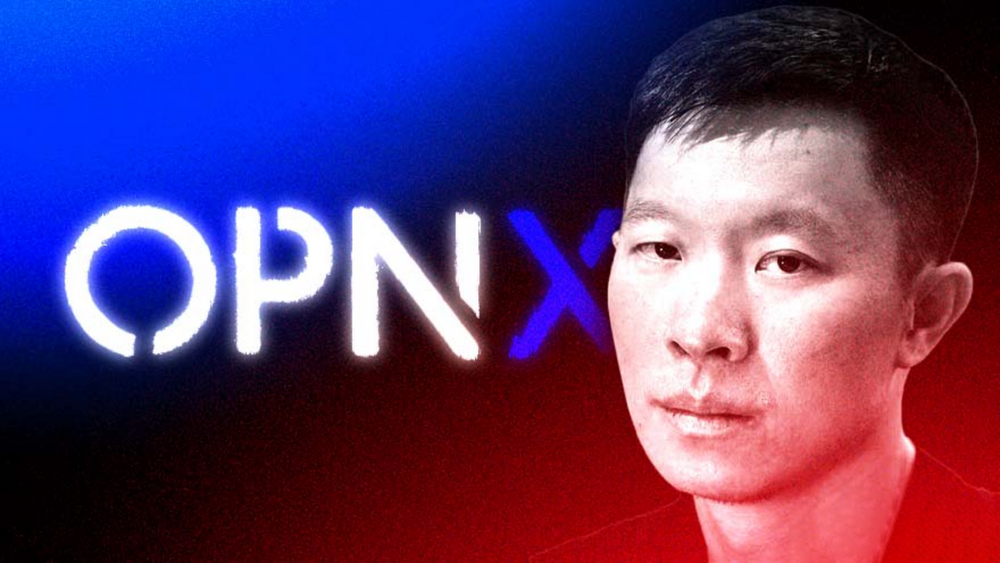GM and BMW jointly lay blockchain and share autonomous driving car data
According to recent reports from foreign media, auto giants General Motors and BMW are supporting blockchain technology to share autonomous vehicle data between themselves and other automakers.

(Source: unsplash )
This is all about unlocking valuable data stored in silos and ultimately getting autonomous cars to get on the road faster. With the support of the Mobile Open Blockchain Initiative (MOBI), exploratory work in this area is underway. MOBI was an alliance formed last year to coordinate the development of distributed ledger technology (DLT) across the automotive industry.
- Chinese cryptocurrency, from the center of the stage to the edge
- Market Analysis: Bitcoin price rebounds or represents market recovery
- Reduction of Ethereum and XRP, senior investment fund Grayscale adjusted position ratio
CoinDesk was informed that the next MOBI so-called Automated Automotive Data Market (AVDM) working group will be chaired by General Motors (GM). Obviously, the automaker has considered using blockchain to share data for some time. At the end of last year, the company applied for a blockchain patent for autonomous vehicles, detailing the system.
Michal Filipowski, GM's global innovation manager and new chairman of the AVDM working group, told CoinDesk in an email:
“I am very pleased to be the Chairman of the AVDM Working Group and have started working with other OEMs (Original Equipment Manufacturers) and suppliers of MOBI members.”
It is worth noting that as one of the founding members of MOBI, BMW (BMW) also expressed its interest in blockchain data sharing use cases for the first time. (Previously BMW tested the use of blockchain to track the mileage of rented vehicles.)
Like many other manufacturers in the automotive sector, the German manufacturer has realized that keeping autopilot data in silos is a “major obstacle” to the widespread adoption of autonomous vehicles.
Andre Luckow, head of the blockchain at BMW Group, told CoinDesk:
“With the advent of blockchains, decentralized data management can be achieved in a privacy- and efficient manner. In addition, emerging technologies such as decentralized machine learning, secure multi-party secure computing and decentralized data markets Will provide an architecture for data processing in the autonomous era."
To take a step back, efforts to develop autonomous vehicles face a key obstacle: in order to “learn” how to drive in different locations and scenarios, autonomous vehicles must consume large amounts of data. Driving on the test track is one thing, but going through the busy city center on a rainy day is another matter.
crown
According to a report from the RAND Corporation, it may take hundreds of billions of autopilots to get the autopilot on stage, using cameras and lidars (a radar-based detection system based on radar principles). Data collection.
Bringing together these data to train artificial intelligence seems to be a no-brainer, but autonomous car companies—whether carmakers, Uber, or Google’s Waymo—will automatically Driving data is considered a gem in your crown.
Sebastien Henot, head of business innovation at the Renault-Nissan-Mitsubishi Alliance innovation Lab in Silicon Valley, explains that this is the entry point for the blockchain. (Hinnot is the chairman of the MOBI Automotive Identification Working Group). He told CoinDesk:
“Traditionally, everyone thinks their data is invaluable. The new approach is to consider data sets like cooking ingredients: you need to be able to mix multiple data sets to create something truly valuable. The data market is technically It's called a blockchain, because you can create an environment in which the rules about who and whom to share what data is clear."
Another member of MOBI, the Ocean Protocol (which was launched on Monday), focused on creating blockchain-based data markets and running shared artificial intelligence in those markets. Ocean's co-founder, Trent McConaghy, aims to create an enterprise data sharing mechanism that everyone can benefit from, but at the same time, the data can be prevented from fleeing from any company. Firewall.
McConaghy explained that Ocean uses "Federal Machine Learning" (machine learning that does not directly access training data, for example, data is stored in its original location, such as on a smartphone) and gives it additional centralization capabilities.
Google and other companies have been "extending the centralization of federal learning," McConaghy said, and they control the entire process.
“This makes data holders feel quite uncomfortable. So if you can eliminate this creepy feeling and the learning process in a decentralized way, from one data silo to another data silo, then It’s much better. Decentralized federal learning is the way Ocean opens,” he told CoinDesk.
As part of the MOBI AVDM team, BMW and General Motors seem to be interested in this more decentralized approach.
Michael Ortmeier of BMW Group IT Communications said that Ocean is "very interested" in the way data is shared.
“We used the opportunity of the MOBI seminar to communicate with Ocean and other members, and we will definitely continue and strengthen these discussions,” he said.
Waymo data
It’s no secret that Waymo, the auto-driving technology development company of Google’s parent company, Alphabet, is ahead of other companies in data collection.
However, MOBI founder and CEO Chris Ballinger said that if you calculate these numbers, Waymo may take many years to achieve this goal.
Ballinger, the former head of Toyota's mobile business, estimates that Waymo's monthly driving mileage is over 1 million miles, he added:
“So you can say that it takes thousands of years in miles. What we have to do, obviously, as more cars get on the road, the speed will increase. Once everyone gets involved, once they start sharing, There will be an order of magnitude increase."
However, Vint Cerf, Google's vice president and chief Internet evangelist, refuted the claim that Waymo may have a long way to go in achieving autopilot (AV) goals.
It depends on what you mean by "driver data", Cerf says:
“We can simulate billions of miles by seeing what you see directly into the software.”
For car companies to use blockchain networks to share data, Cerf added:
“I don’t see the extra value of the overhead between the blockchain and the digital signature.”
We will continue to update Blocking; if you have any questions or suggestions, please contact us!
Was this article helpful?
93 out of 132 found this helpful
Related articles
- 1 BTC = $ 5224, does Bitcoin usage currency make sense?
- The network effect of value storage: Is it the moat for encrypting world projects?
- The National Development and Reform Commission plans to phase out the virtual currency "mining", causing a big discussion inside the circle
- Jingdong released the "White Paper on Blockchain Technology Practice (2019)", and the blockchain ranks among the four core technical capabilities of Jingdong Digital Technology
- The world's first lightning atom exchange exchange – Sparkswap
- The 0.18 version of Bitcoin Core will be released soon, allowing Bitcoin to connect to the hardware wallet
- Asian encryption market in the eyes of a Western investor






